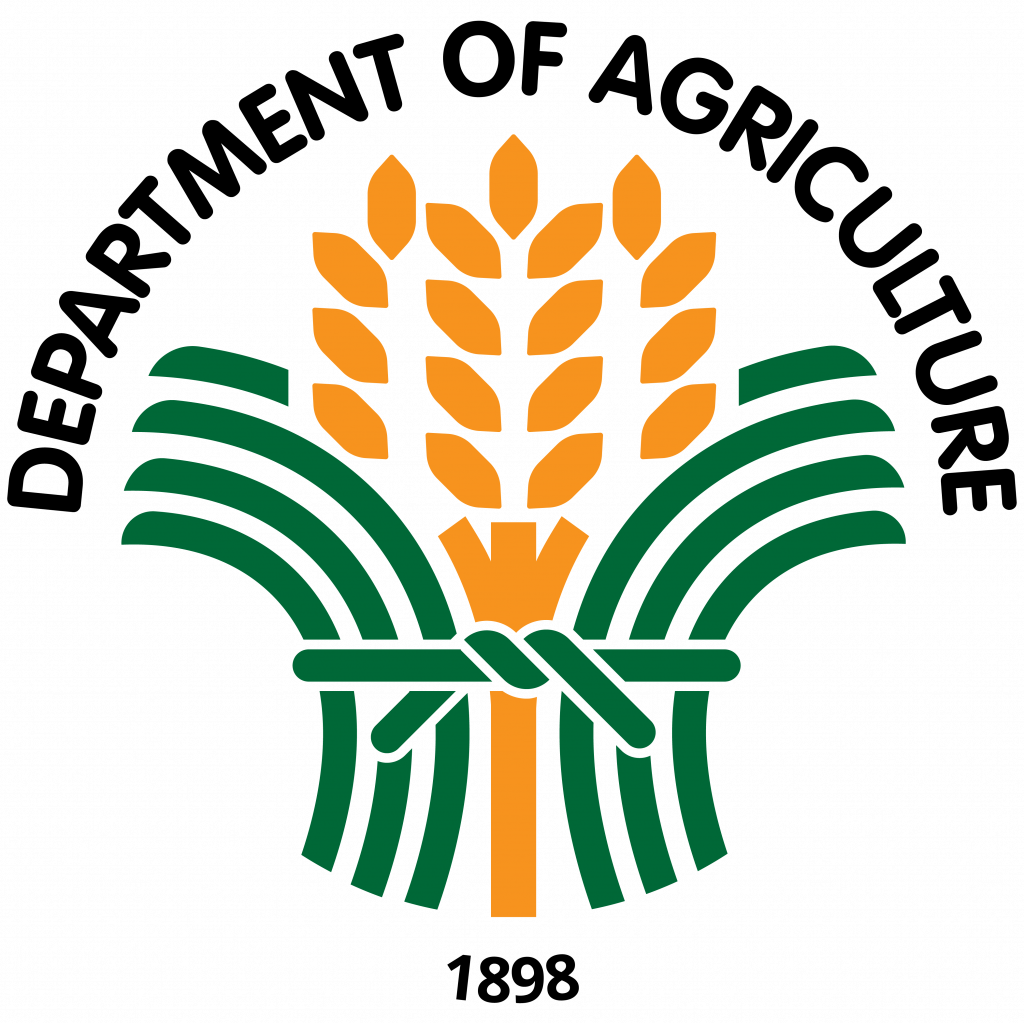DA-CAR Press Release No. 23-89
𝐑𝐅𝐅𝐀 𝐫𝐨𝐥𝐥𝐬 𝐨𝐮𝐭 𝐢𝐧 𝐁𝐞𝐧𝐠𝐮𝐞𝐭, 𝐭𝐚𝐫𝐠𝐞𝐭 𝐛𝐞𝐧𝐞𝐟𝐢𝐜𝐢𝐚𝐫𝐢𝐞𝐬 𝐧𝐞𝐚𝐫𝐢𝐧𝐠 𝟗𝟎%
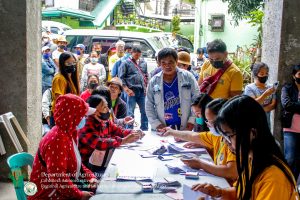 Five hundred and fifty-five (555) Benguet rice farmers have received their P5,000 cash aid rolled out from the Department of Agriculture’s Rice Competitiveness Enhancement Fund – Rice Farmer Financial Assistance (RCEF-RFFA) to further strengthen rice competitiveness. The distribution caravan was facilitated by the DA-CAR Regional Rice Program in collaboration with the Universal Storefront Services Corporation (USSC) in Guisad, Baguio City on May 11-12, 2023.
Five hundred and fifty-five (555) Benguet rice farmers have received their P5,000 cash aid rolled out from the Department of Agriculture’s Rice Competitiveness Enhancement Fund – Rice Farmer Financial Assistance (RCEF-RFFA) to further strengthen rice competitiveness. The distribution caravan was facilitated by the DA-CAR Regional Rice Program in collaboration with the Universal Storefront Services Corporation (USSC) in Guisad, Baguio City on May 11-12, 2023.
This is relative to the FY 2021 and 2022 conduct of RFFA distribution caravan for Benguet, especially farmers who have corrections on the information they have provided in their Registry System for Basic Sectors in Agriculture (RSBSA).
As of May 13, 2023, the DA-CAR has already rolled out 385.4 million pesos, benefitting more than 86,000 farmers, or 85.36% of total cashout vs. target. There are still about 11,000 farmers in the region who are still unable to claim their cash aid.
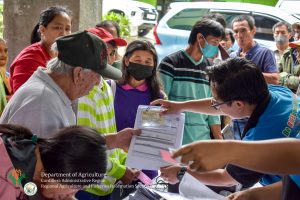 The RFFA aims to provide temporary relief throughout the implementation of the Rice Tariffication Law (RTL), given to smallholder RSBSA-registered rice farmers tilling two (2) hectares and below of rice areas.
The RFFA aims to provide temporary relief throughout the implementation of the Rice Tariffication Law (RTL), given to smallholder RSBSA-registered rice farmers tilling two (2) hectares and below of rice areas.
In his remarks, DA-CAR Regional Rice Program Coordinator Edwin Joseph Franco said that the caravan was conducted to cater Benguet rice farmers who have yet to receive their cash aid, mainly because of the correction in their data logged into the RSBSA. He also underscored the importance of being registered in the system as this is one of the bases for the RFFA implementation. Another basis of the program, he added, is one beneficiary per household unless there are two or more families living under one roof. “Given that your extended family also have their own rice areas, they are considered as a separate household despite living in the same house,” he explained.
DA-CAR Regional Technical Director for Operations Danilo P. Daguio explained the purpose of the RTL and its vital role in the rice competitiveness and food security of the country. Accordingly, the RTL was made after the conclusion of the 20-year Minimum Access Volume (MAV) on rice implemented by the World Trade Organization (WTO) to its members. The MAV aims its members a chance to sell their local produce and develop their own rice farmers to become competitive with the other rice-producing nations, in a sense that the production will be higher or be at par with the other rice-producing nations. Hence, the WTO set the rice importation ceiling to about 500MT.
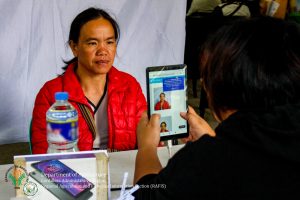 But with the Philippines lifting its quantitive restrictions on all food products including rice in 2017, the government formulated Republic Act No. 11203, or the RTL in 2019 to ensure food security and make the agricultural sector viable, efficient, and globally competitive. The State adopted the use of tariffs in lieu of non-tariff import restrictions to protect local producers of agricultural products.
But with the Philippines lifting its quantitive restrictions on all food products including rice in 2017, the government formulated Republic Act No. 11203, or the RTL in 2019 to ensure food security and make the agricultural sector viable, efficient, and globally competitive. The State adopted the use of tariffs in lieu of non-tariff import restrictions to protect local producers of agricultural products.
RTD Daguio further elaborated that under RTL, Ten Billion pesos will be annually allocated from the tariff collection in any given year for six (6) years period following the effectivity of the law. The allocated fund will then be disbursed to Rice Farm Machinery and Equipment (50%), Rice Seed Development, Propagation, and Promotion (30%), Expanded Rice Credit Assistance (10%), and Rice Extension Services (10%). “And if ever the tariff collection exceeded 10B pesos, the excess will then be allotted to other rice-related programs, one of them is the RFFA,” he stated.
He also explained that the fund for farm mechanization is higher as this is one of the main factors that may lower production costs. “Currently, the production cost of 𝘱𝘢𝘭𝘢𝘺 in the country is about 12 pesos per kilo, compared to Vietnam which only spends 6 pesos per kilo. That’s because their farm mechanization is high. Hence, we want to promote farm mechanization to lessen the labor which currently costs 4 pesos per kilo,” he continued.
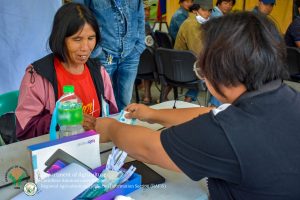 In closing, he asked for the cooperation and commitment of the farmers in implementing DA’s programs to ensure their success in the future.
In closing, he asked for the cooperation and commitment of the farmers in implementing DA’s programs to ensure their success in the future.
Another RFFA caravan is set to roll out in Ifugao on May 18, 23 and 24, 2023, and in Apayao on May 19, 2023. Farmers who were unable to claim their cash aid during caravans can still visit the USSC stores until June 30, 2023. Unclaimed cash after the said date will be subjected to realignment by the National Treasury and will be obligated to the other programs of the government. (CEWaytan, Department of Agriculture-Cordillera)
